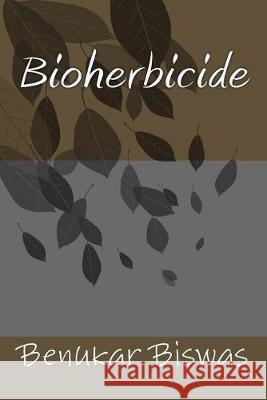Bioherbicide » książka
Bioherbicide
ISBN-13: 9781514103661 / Angielski / Miękka / 2015 / 80 str.
Biological control of weeds is the deliberate use of natural enemies to suppress the growth or reduce the population of a problem weed species. Augmentation of indigenous fungal plant pathogens (bioherbicides / mycoherbicides) is a bio control strategy which involves the application of living inoculum of an endemic plant pathogen, generally a fungus, in a manner very similar to that of a chemical herbicide. Bioherbicides are applied in an attempt to overcome disease restraints by periodically dispersing an abundant supply of virulent inoculum onto a susceptible weed population. The application is timed to take advantage of favourable environmental conditions and/or the most susceptible stage of weed growth. Low virulence of the pathogen and fastidious environmental conditions are the two major biological restraints: formulation and scale up "fermentation" are the primary technological restraints: and depending on market opportunities, economic and regulatory aspects are also potential restraints to bioherbicide development. Bioherbicide research directed towards tropical weeds has only recently commenced with active programs in the Republic of Korea, Japan, Mainland China and the Philippines. Biological control is usually limited to one or a few closely related species and as such cannot presently be considered as an alternative to broad spectrum chemical herbicides and other weed control tactics, but should be considered as a complementary strategy in integrated weed management systems.
Zawartość książki może nie spełniać oczekiwań – reklamacje nie obejmują treści, która mogła nie być redakcyjnie ani merytorycznie opracowana.











